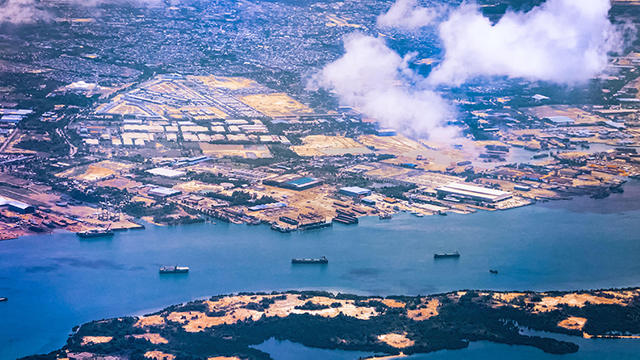
The Strait of Malacca, with a total length of more than 900 kilometers, is one of the most important sea lanes in the world, located between the Malay Peninsula and the Indonesian island of Sumatra. It is a major sea route connecting the Indian and Pacific Oceans, making it a key thoroughfare for international trade.
About a quarter of global trade goods pass through the Strait of Malacca every year, including oil, consumer goods and natural gas, which means more than 50,000 ships pass through the strait every year, highlighting its importance as one of the busiest shipping lanes in the world. The strait is a vital artery for energy supplies, with much of the oil imports of major economies such as China, Japan and South Korea passing through the route.
The importance of the Strait of Malacca is not limited to the commercial sphere. It has been a focus of geopolitical attention for centuries, attracting the attention of regional powers and global players. Controlling and securing the strait is vital due to potential piracy, smuggling and terrorism, threats that could disrupt the flow of trade and energy supplies. The narrowest point, known as Phillip Channel, is particularly vulnerable to such threats.

Efforts to ensure safe navigation in the Strait of Malacca involve cooperation between coastal countries - Malaysia, Indonesia and Singapore. These countries have implemented measures such as coordinated patrols, information sharing and traffic separation systems to enhance maritime security and navigation safety. International initiatives, including those from the United States and Japan, also play a role in maintaining the stability of this important waterway.
Environmental issues are another important aspect of managing the Strait of Malacca. Heavy shipping traffic poses risks to marine ecosystems and measures must be taken to prevent oil spills, manage ballast water and address other forms of pollution. Sustainable management practices are critical to balancing the economic benefits of this important shipping route with the need to protect its ecological health.
